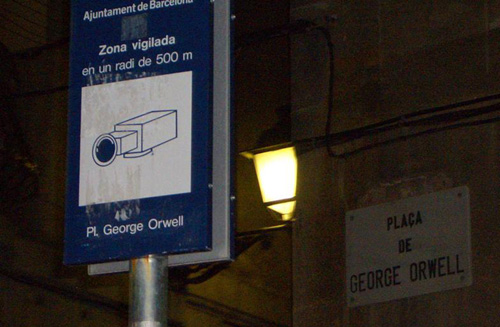Here’s something I wrote for Fast Company magazine many moons ago, the core of which I was discussing with someone late last night…
In his classic 1962 book, The Structure of Scientific Revolutions, Thomas Kuhn argued that the people who achieve “fundamental inventions of a new paradigm have either been very young or very new to the field whose paradigm they change.” In other words, when it comes to innovation, organizations can be disabled by experience and specialization.
Einstein and Picasso were at their most original in their early years — the young Einstein invented the special theory of relativity in 1905 when he was just 26 years old. In 1907, a 26-year-old Picasso painted Les Demoiselles d’Avignon and effectively invented cubism.
Of course, the idea of youth was itself new in the early 1900s and it wasn’t until the 1950s that someone “invented” teenagers. But some companies still haven’t quite caught up with the idea that it’s young people (a company’s staff and customers) that are the most likely to invent the future.
There are plenty of reasons why the most innovative people in any organization are the newest recruits. Young people tend to have the most energy and the most confidence. They’re also outsiders and have little respect for tradition or orthodoxy. Their lack of experience can also be an asset because they’re not restrained by history or preconceptions. Older employees, on the other hand, know that it has all been tried (and failed) before.
This lack of experience was something that Seymour Cray (an early designer of high-speed computers) seized upon. Cray had a policy of hiring young, fresh-faced engineers because they didn’t yet know what couldn’t be done.
Another issue is that the longer you work for an organization, the more you adopt groupthink and the further removed you become from real life (how customers think, feel, and behave). I once worked with one of the largest automotive companies in the world who wanted to understand how people really bought cars. In one meeting we innocently asked a group of 35 senior executives when they had last bought a car on their own with their own money. Not a single person could remember. In contrast, the younger employees who were not given company cars had a real grasp of reality.
Another car company, Toyota, once put together a “board” of children to advise them on product development. Hasbro has done the same with toys, and Xerox’s Palo Alto Research Center once asked some school kids to attend a series of brainstorming sessions on the future of technology. Indeed, as Groucho Marx said, “This is so simple, a 6-year-old child could understand it. Quick, get me a 6-year-old child.”
Just after the American Civil War, a doctor called George Beard got interested in whether there was a connection between age and creative ability. He found that there was — and that creativity peaks around the age of 40. Moreover, he estimated that 70% of global creative output came from people under the age of 45. A few years later, another study by Harvey Lehman observed that, whilst the finding was true, the relationship between creativity and age varied according to discipline.
Conversely, it’s also some of the oldest employees (and especially those that are closest to retirement) that have the best ideas because they have little or no responsibility for the outcomes. They’re not restrained by the practicalities of implementation, and they no longer care what anyone else in the organization thinks about them. Mix these people up with some young minds and the results can be explosive.
What are the practical lessons here for innovation teams?
• Involve some of the newest recruits. If you don’t know any find some.
• Think like a kid yourself sometimes – keep asking why?
• Hire curious people and don’t always get hung up on experience.
• Plug into the brains of older employees (even those that have retired).
• Mix innocence with expertise (new ideas often favour youth, whilst development and execution often suit experience).
Finally, ensure that teams are multidisciplinary. This doesn’t just mean getting someone from marketing and someone from R&D. Involve customer service, customer complaints, sales, finance, and production. And whatever you do, try not to put together a group where everyone is the same age, the same sex — and went to the same school. Because, guess what? They’ll probably all have the same idea.


